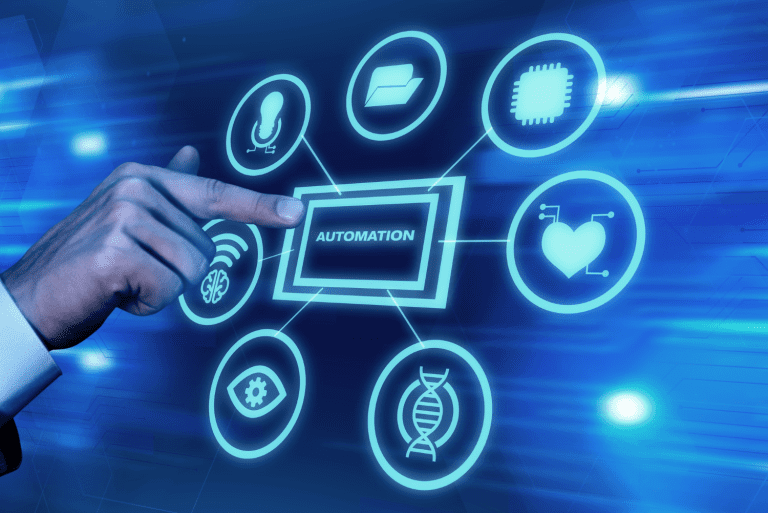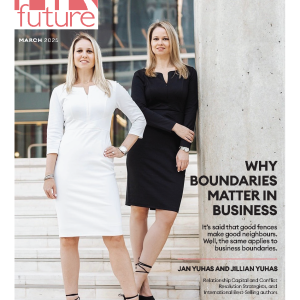Soft skills such as problem-solving, creativity and collaboration are important for leadership to have, with much hinging on such skills. Yet, employees today are disengaged and dissatisfied at record high levels, and over 50% of leaders are experiencing burn out, suggesting that leaders are not as focused on soft skills as they should be.
However, an old concept called “emotional banking” combined with artificial intelligence may offer a solution to “human sustainability” in the workplace, which includes worker well-being, happiness, and purpose, helping to drive better human performance.
History repeating
Amidst the space race of the 1960’s, engineers, scientists, and mathematicians preferred using human calculators to newer electronic calculators. Movies such as, “Hidden Figures,” portray how scientists and engineers performing complex calculations could not fathom a day when a device would take a human calculator. In fact, John Glenn famously refused to fly Friendship 7 until Katherine Johnson, a human calculator whom he trusted, verified the electronic calculator’s calculations.
Today, I will venture to say that most people would implicitly trust a calculator on their smart phone or computer over any human, even themselves. Much the same way mathematical calculation mastery has transitioned from humans to machines, artificial intelligence is just at the verge of showing leaders what it can do for soft skills, but still most people are skeptical of its capability.
The status quo
Research conducted by Harvard University, the Carnegie Foundation, and the Stanford Research Center has all concluded that 85% of job success comes from soft skills, and only 15% of job success comes from technical skills. One would imagine every leader’s primary goal would be to have the best soft skills.
Evidence shows otherwise, however, with some estimates putting employee disengagement worldwide at 60%, company turnover rates at over 25%, manager burn-out rates at over 50%, suggesting that leaders are not focused on soft skills.
I believe that many leaders just hunkered down and waited for the “return to normal” that never came. In the meantime, employees embraced the new digitization of the workforce.
Like a long-term relationship that has faded, managers and employees just drifted apart. So, are we hopelessly lost, caught in an epic battle, where one partner has changed, and the other is hopelessly grasping for the past? Maybe the solution is relationship counseling?
Trust is not earned anymore, it is banked.
When my partner and I first realized we were going to have a baby, we decided to take part in a “Baby and Me” class. The focus of the class was how to deal with the emotional trauma of having a baby and keeping our relationship heathy. In the class, we learned about this technique called “emotional banking.” The idea is that your relationship is like a bank.
The more proactive you are, doing positive things seen by your partner as thoughtful, loving, kind, etc., you “deposit” points into the bank. Every time you disagree, fight, or have a negative emotional reaction you do a “withdrawal” from the bank. The concept is easy, always try to have a positive bank balance because in relationships there is no such thing as credit.
The concept sounds easy enough, but in practice, it is hard to achieve with just one person. Foul smells, crying and a of sleep (and that is just you, not the baby) all affect your ability to maintain your relationship, but the approach works. So how can leaders use this approach in the workplace, and scale it with over a dozen or more people reporting to them? This is where AI comes to the rescue.
It is a mindset change: Think proactive, not reactive.
Can you imagine if NASA had launched rockets full of astronauts into space without a flight plan and made course corrections on the fly to get to the moon? It would have been disastrous. Yet, that is the status quo for managing our people today. We send them off after some initial onboarding and then provide them with one or two performance reviews a year to course correct.
Sure, we talk to our people, provide them with mentors, tell them they are doing a good job, but how often do employees receive meaningful feedback? Feedback intended to let employees know they are appreciated and their contributions matter, and where they can improve? All too often, it’s at their performance review that happens once or twice a year.
This is where AI will change the paradigm. AI will enable leaders to provide meaningful feedback, proactively instead of reactively. Analogous to human calculators vs electronic calculators, the process of gathering reliable information on how a person is doing was time-consuming and required a lot of work. AI can do that same task for every individual on your team within minutes.
Where one individual might just need a confidence boost, another might require a stern warning. AI can piece together a curated, bespoke performance plan for each of your team members so that leaders can provide feedback that is relevant to each person within minutes of a situation forming.
Additionally, by providing feedback proactively, you build trust faster. With each piece of feedback, you “bank” points, building trust with your employees. When you give critical feedback, you have a healthy balance to withdraw, meaning you have built up a certain amount of trust with your employees.
They will take the feedback to heart and know it is coming from someone who cares about their growth and wants them to succeed, not an evil corporate manager looking to squeeze more out of them.
Old Dog, New Tricks
In much the same way, Microsoft Excel recommends a method for solving an error in your equation, AI applications can even provide recommendations on next steps, offering support and guidance in soft skill areas where a leader may be less experienced. For example, a leader may not realize that they have consistently cancelled 1:1 meetings with an employee, saying an urgent matter has taken priority each time.
How long will it take the employee to think they are not valued, and begin to look for another job? AI applications can provide warnings, recommendations to remedy the situation and even repair any relationship damage that may have been caused, bridging the soft skills gap currently plaguing work culture.
AI provides a force multiplier to a discipline, like never before seen in history. The software industry is seeing this as it integrate with AI, leveling-up existing resources and amplifying their capabilities. AI in the same way, can take average or even low-performing leaders and turn them into superstars. This in turn builds better, stronger teams that outperform.
Integrating AI into management practices can provide leaders with valuable insights and guidance into their teams, and their own performance, in a matter of minutes. Leaders can adjust soft skills such as motivation, collaboration and decision making in real time, rather than retroactively months later.
Conclusion
“Human sustainability” is achievable today with the use of artificial intelligence, but like the early electronic calculators, it is not quite trusted yet. It will require a shift in mindset by leaders. Dealing with employee growth and wellbeing with purpose needs to be achieved proactively by leaders rather than reactively.
Thanks to the help of an old concept called emotional banking combined with artificial intelligence, leaders can achieve “human sustainability” in the workplace, helping to drive better human performance today.
References:
https://airandspace.si.edu/stories/editorial/hidden-figures-and-human-computers
https://hbr.org/2023/05/more-than-50-of-managers-feel-burned-out
Deloitte’s 2024 Global Human Capital Trends
https://www.airandspaceforces.com/former-google-ceo-ai-force-multiplier-pentagon/
Seckin “Sage” Secilmis is the Founder & CEO of 5fn. He is a product development leader with an established record of successfully transitioning products from concept to production. He’s passionate about building high performing teams, which has led him to be an expert in fostering and transforming a company’s culture to overcome organizational inertia, leading to lasting change.
Prior to founding 5fn, Seckin’s leadership experience has spanned industries and roles, including leading the success exit of spacetech startup Tethers Unlimited as the COO & GM; leading a large, 150-person, cross-disciplinary engineering team producing AED devices; and leading the development of Boeing’s B737 BSI Mood-Lighting System which flies on every aircraft in production today and has over a dozen patents. Seckin has an MBA from C.W. Post, Long Island University, and a B.S. in Computer Engineering Technology from Rochester Institute of Technology.















































































